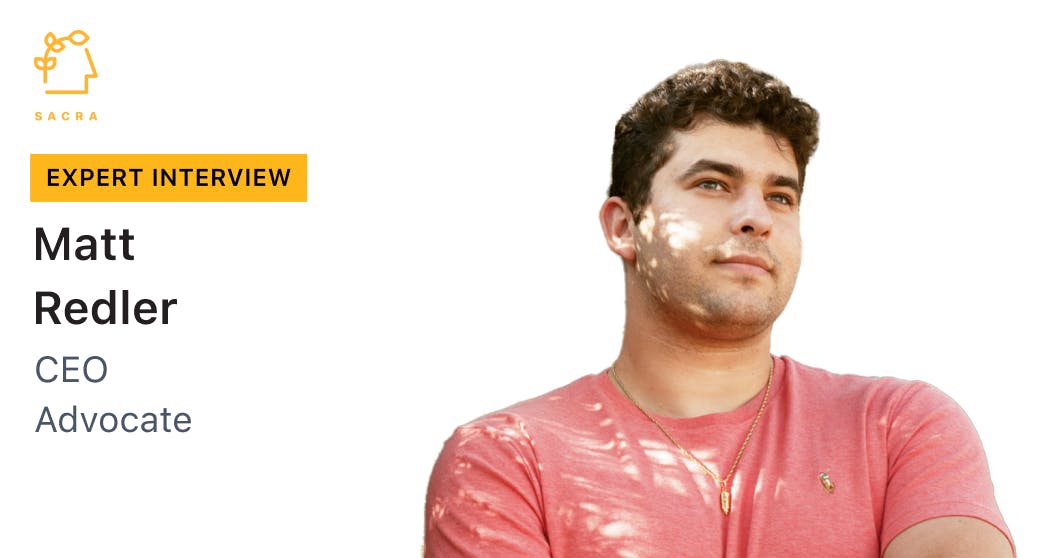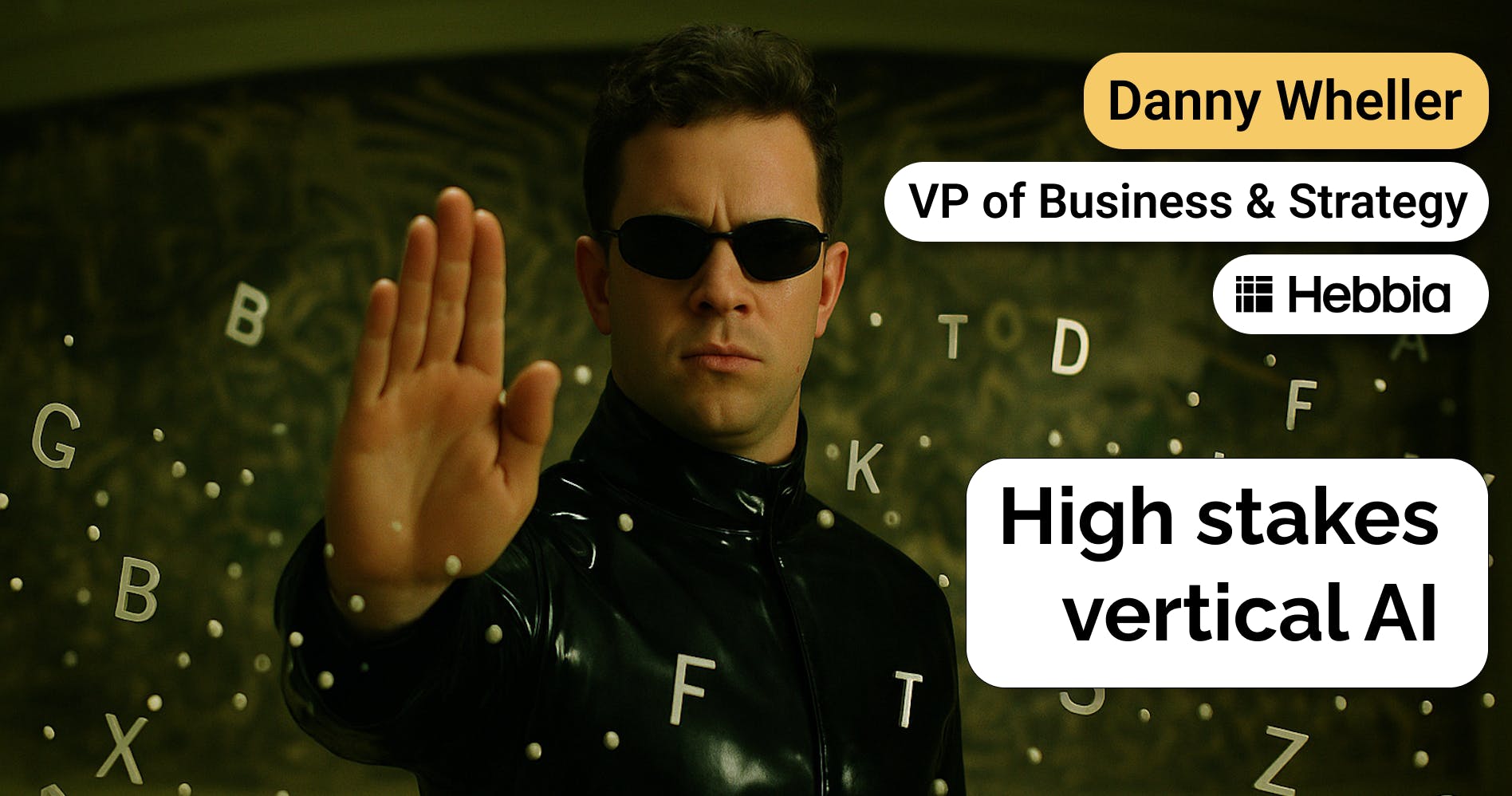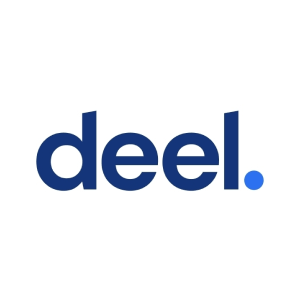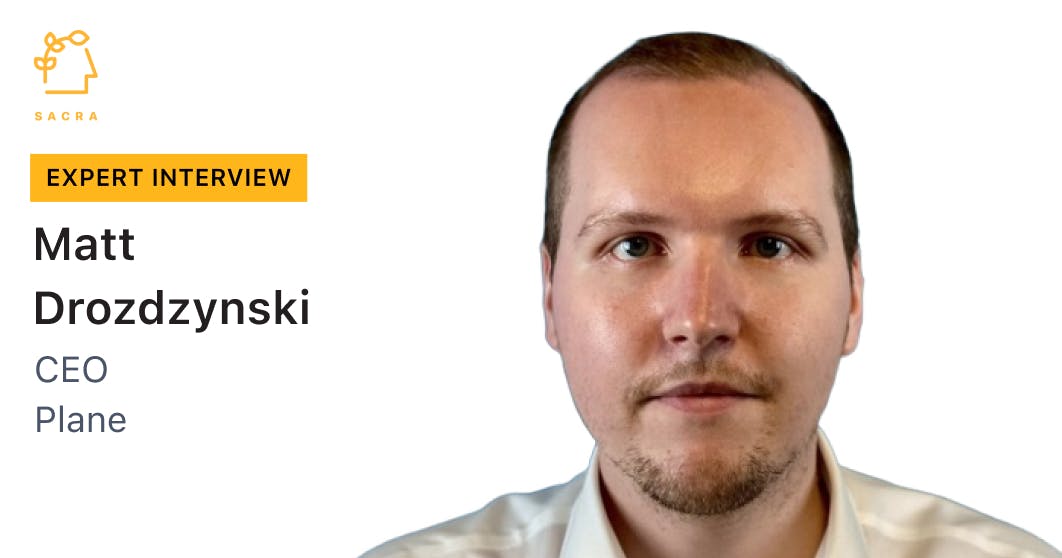Matt Redler, ex-CEO of Panther, on the competitive positioning of Deel vs. Remote vs. Rippling
 Jan-Erik Asplund
Jan-Erik Asplund

Background
Matt Redler is the former CEO of Panther and the current CEO of Advocate. We talked to Matt to discuss his experience building an employer of record startup, transitioning to a contractor payments model, and shutting down due to competitive dynamics and fundraising challenges. He shares insights into the operational complexities, regulatory risks, and product differentiation strategies of players like Deel and Rippling in the global hiring and payments space.
Questions
- Can you tell us about the origins of Panther? How did you get started? What was the initial product market fit (PMF) like?
- Let’s go a little deeper on the pure software play for employer of record. You mentioned that you were reselling your partner’s services which was a mistake for your unit economics. Do you think the thesis is still viable? Do you still think about Deel as essentially a software-enabled services business and how do you think about their ability to continue to scale given that?
- Do you think of these companies like Deel and Remote and Papaya Global as software-enabled services?
- Is it safe to assume that every player in the space is a dumpster fire behind the scenes? There's a certain base assumption that that has to be true.
- To what extent did regulatory compliance risk play into your decision to shut down the company? Do you see that it's a necessary component of being a player in the space to carry a certain amount of risk because of classification risk from customers? How do you think about that universal growth?
- You're in this unique position because you went from EOR to contractor platform. There are some interesting dynamics there, but do you see that the contractor market is more naturally attractive maybe because it's cheaper to service? There’s also this sense that it's just part of unified payroll. How do you think about the EOR market and the contractor?
- How are you seeing these global versus domestic payroll? While these distinctions are breaking down, do you think that that is a secular trend that just makes sense and will continue? Or is there any reason to use Gusto for international payments and Deel for domestic?
- When outsiders look at this space, they see Deel, Remote etc., but no differentiation. How would you map out the different positioning, if any, or would you just say it's who has the biggest money moat?
- Do you see anything that stops Rippling from going into global payroll, both contractor and EOR, and taking on some of the risk around what we spoke of?
- Does this not willing to take on as much risk manifest itself as just the slower country by country rollout?
- Can you talk a bit about what you’re working on now with Advocate?
- One of the common sales and marketing things I'm hearing from you is that in part you're a strong salesperson. You're a founder and you understand how to sell. For one of the things that right now looks like it's positioned as a service, how do you maintain quality and outreach? How do you think about that element of moving to self-serve?
- There's a lot of fragmentation but also consolidation happening in rev ops. How do you see the rev ops stack evolving over the next few years? Where do you see it going?
Interview
Can you tell us about the origins of Panther? How did you get started? What was the initial product market fit (PMF) like?
In my startup before Panther, I was the only U.S. employee. Long story short, when COVID hit, we had to wind that company down. We started connecting all of our teammates with other startups that we thought they could be a good fit for and they really wanted to hire them.
That’s when I saw, for the first time in my career, a legitimate hair on fire problem. This anxiety around how to employ people without breaking all the laws. They just had no idea how to do it and it gave them anxiety because theyI didn’t really want to have to learn all about it.
At that moment, my co-founder Vasil and I realized that we needed to think about the employer of record market, because we saw a very clear path to getting to $100 million in annual recurring revenue. This math is probably wrong now because I'm not actually doing it, but all you needed to get there was something crazy—1,000 or 10,000 EOR employees—something like that. That felt very reasonable.
We started the business in early July of 2020, and I remember the same week that we had ideated about it, I saw and learned for the first time about Deel through their Series A round with Andreessen and Remote through their ~$11 million seed round. We knew we had to get moving.
One thing that was a common theme was that even from our first fundraise at that point, we really had to talk a lot about other startups and not enough about ourselves.
From the infancy, we needed to find a way to be different, so we tried several different things to carve out our own niche and create a story to justify raising capital. In the earliest days, it was about building the world's first pure software employer of record. Our premise was that Remote and Deel and these other companies were building software-enabled service companies.
We were like, "Look, let's take the benefit of being small and not having much here, and let's try and from the ground up build things in a software way," so that we could offer better pricing than anyone else, potentially even free. We could offer the SaaS for free and make money off the flow of funds and all these types of things that you have really fleshed out in some of your other nearby pieces.
The feedback that we got when we went with that strategy was either this seems too hard or if it is possible, these other guys are going to do it. So it was hard to raise money at that point. Then we went back to the drawing board and tried to think about strategy again. We thought about how we could rebuild the HRIS from scratch, specifically for globally distributed companies.
At the time, this was a much bigger deal than it is today, but the premise was like, "Okay. We'll have, of course, domestic payroll and global EOR and contracting, but then we'll also have the ability to distribute equipment around the world to run global background checks."
As part of it, we redid the applicant tracking system so that it more favored asynchronous communication when interviewing and dealing with folks from different places around the world, which is like, "Let's rethink every piece from scratch."
That was also difficult to raise money for, although more because our competitors have done such an incredible job sucking up an immense amount of capital from all the big names in the ecosystem that—like I said—every VC meeting was almost depressing because I was only talking about competitors and I never wanted to. It would suck all the juice out of the conversation for me, but they were fearful that if they wrote us a check, what was our ability going to be? Investors feared the uphill battle we'd face in subsequent funding rounds, even if our execution was flawless.
This reminds me of this Sequoia phrase that, "Money is not an advantage until money is an advantage."
Here, I want to focus on another strategic play that we made. In March 2021, we signed a $20M Series A term sheet. After exhaustive pre-term due diligence and a month-long legal slog, we thought we had it in the bag.
We thought that this was our chance to build this. At the time, we were going to build this global HRIS and take on all these other companies. We were supposed to close the deal the week that the war in Ukraine broke out, but the guy on the other side pulled out, and that just honestly murdered our momentum. It taught me a really hard lesson, which is that of all the deals that you’re 99% going to close, only half of them ever do.
We were left with just two to three months of runway. So we had to immediately restructure the org. This was, right after the week that the Ukraine war broke out so it was before everybody was doing layoffs, and it just put us in a state of survival mode for several reasons.
Number one, the obvious, which is the lack of funds.
Number two is the fact that we had no idea what the fundraising market would be like at that point. So we looked hard at our business model and we said, "Even if we start killing it and bringing in a ton of employer of record business," which is all we did at the time, "Can we get profitable?" and we realized the answer was no, because by the time we paid, our cost of goods sold because we were set up in the short-term, lest the idea that we relied on a partner for facilitating the actual local legal entities.
So, by the time, we paid them around $300 per employee per month before a bunch of random fees popped up everywhere. By the way, we were charging $500. By the time where we'd often find ourselves, unfortunately in hindsight, especially the customers we would win.
We'd win on price and nobody wants to win on price because everybody knows of our competitors. By the time we paid salespeople to handle this complicated sale where it's expensive and weird timelines around employment and it's complicated, we were losing money. We were like, "There's literally no way for us to turn this thing around with this business model."
So we started looking at the contracting model. To be honest, your piece was a healthy part of that research, understanding that opportunity. The strategic idea was, "Let's try and use software to create an employment-like experience for contractors so that it could be a legitimate alternative to the employer of record," because even though EOR is much better and more affordable, of course at a certain scale than building your own entities, it's still really expensive.
I was realizing that in most of the opportunities we were losing, it's because folks just would rather hire as contractors.
So the things that we wanted to do is, of course, offer healthcare and other types of benefits, but also allow these contractors to eventually have access to payslips so that they can have good credit and access to loans etc. That was our final vision, and the vision was important because these were long-term tenure visions that were a tool in the near term for us to try and raise money.
I guess long story short, we never got out of survival mode where we had more than six months of runway because of the cap table. I learned a hard lesson there. I had two startups before Panther. I had not winded them down and started new companies, but I had rolled those investors over with good intention to try and take care of them into the current company, which meant when we were raising money, not only did we have all the obvious friction points that we highlighted, but there was also this fear of a future recap.
I lost confidence because the environment was getting harder, not only when it came to raising money, but in terms of the market, with Gusto going global, Rippling going global, and Deel expanding their product lines, it felt like there was less and less reason as to why customers should legitimately choose Panther.
My instinct for years had been to push forward at all costs. At this moment, I knew the right thing to do was pump the breaks. To stop burning money. To return as much assets as possible back to our stakeholders.
Let’s go a little deeper on the pure software play for employer of record. You mentioned that you were reselling your partner’s services which was a mistake for your unit economics. Do you think the thesis is still viable? Do you still think about Deel as essentially a software-enabled services business and how do you think about their ability to continue to scale given that?
I think a pure software employer of record is more feasible than ever, thanks to AI and ML helping manage the near-infinite edge cases.
Execution is where the rubber meets the road.
For us, it was storytelling the opportunity, raising the capital, and then figuring it out and de-risking the business because until we could afford to do otherwise, we were one or two steps away from the actual employer of record service. We found ourselves, of course, building software first that was customer-facing to try and create a better experience around these things, but then, ultimately being a messenger down to the end employer of record, which was an operational shit-show. An actual nightmare.
We would not only have to first own the infrastructure ourselves to understand what does it take everywhere, which is a fixed cost business minus or not minus, but not considering headcount, but just the legal aspects and the filings and whatnot. Then, only after that or maybe at the same time, if you're the best of the best, can you say, "How can we instead do this with first principles?" There's a problem we need to solve. We can either hire a person to do it, which is what I think the big players have done or I think the question or the other direction that is only recently available is, "Can we first try and solve this with AI?" So I do think it's possible but it is immensely complicated.
Clearly, even without doing this, you can build an incredibly nice business, but most of the cost associated with the employer of record service is on the operational complexity to run it and all the people—it's huge. If you can abstract that away with software, you can beat everyone else because you will have pricing power and the experience power that they wouldn't be able to match. However, that takes an enormous amount of capital, which is its own moat right now in this industry even with that narrative.
Do you think of these companies like Deel and Remote and Papaya Global as software-enabled services?
Yes, I do, particularly when focusing on the employer of record service. When you look away from that and focus on contracting or just money movement through payroll, that is fine. That feels more like a Gusto, which also, for what it's worth, has a huge amount of people behind the scenes filling out forms and stuff.
But yes, I do think that the way that it's designed now—it's all a spectrum and they are significantly more technologically enabled than one of these legacy companies even that are trying to parade themselves as something more modern like Atlas, formerly Elements Global, which was our white-label partner.
Is it safe to assume that every player in the space is a dumpster fire behind the scenes? There's a certain base assumption that that has to be true.
Yes, and with Deel and Remote and these types of companies, they intend on using software to replace more and more of the operational stack over time, but it's really hard. The incentives are not there for the people.
It's very different from being like, "Let's start a stealth company that's going to do employer of record in the U.K. and we're going to start there and it's all going to be automated, and then we will get some customers for that and then we'll build the next one," etc., and using, like I said, AI from first principles from the ground up.
To what extent did regulatory compliance risk play into your decision to shut down the company? Do you see that it's a necessary component of being a player in the space to carry a certain amount of risk because of classification risk from customers? How do you think about that universal growth?
Compliance risk did not factor into our decision to wind things down. Compliance was super hard, but we managed and I wouldn’t include it in my top 10 reasons for why things didn’t work out. We did the work. You need a localized contract. Sometimes you need to collect certain documents. It’s not rocket science.
That being said, around the question of do companies in this industry take on risk, I think the answer is absolutely. It happens largely in two places: employment classification and financial compliance.
On the employment classification front, I find Deel's strategy interesting. Their basic "classification guarantee" strikes me more as a marketing gimmick. The real risk emerges when you scale to their higher service tiers. Here, they take on the responsibility of classification themselves, sometimes in jurisdictions where such a decision could have criminal implications.
One is about the classification guarantees that I'm particularly seeing from Deel. They offer it in two spectrums. The first spectrum is basically risk-free for them. It's just a marketing play to make people feel better. The classification guarantee is that they'll cover up to $25K, but it's $25K if they are the ones at fault for the specific services that they provide, which is basically providing a locally compliant contract. If your behavior is what classifies the person, the $50 you pay them per person every month doesn't do anything. It’s literally just like a marketing feel-good based on the title of that product. That's fine from a risk perspective and smart props.
The level above that though is where things are dangerous. I don't know what they call it, I haven't looked in a while, but essentially what happens is a customer pays a meaningfully additional fee and maybe $300 a month or so and Deel “decides the teammates classification.” This is just a legal loophole.
They hire them as a contractor, probably every time. Because if they were going to hire them as an employee, they’d charge the $600-$700 bucks for the employer of record. Deel is taking on classification, classifying the workers as contractors, even in jurisdictions like France and Germany where these decisions could have criminal implications.
There are just some countries like that —and they do offer this service in all the countries the last time I checked, which really shocked me—where this is criminal and it's the CEO’s name on things. So I can't speak too much in depth to that besides the fact that they are definitely being paid to take on financial risk, and criminal risk. So that is interesting.
The other risk is particularly tricky given Deel’s (and others) need for a money transfer license. Last I checked (caveat this may no longer be the case), they were circumventing the need to have a money transfer license by adopting the "agent-of-the-payee" model.
That is similar to how we were set up. The agent of the payee model means they are the agent of the person being paid, the contractor, and they were collecting money on the contractor's behalf. The alternative would be that you move money on behalf of the clients, but to do that, you would need a money transfer license.
So instead, the way it's set up is they say, "We don't move on behalf of them, but we collect on behalf of the contractor." The problem is the agent of the payee. It's an exemption from the money transfer license, which again is a criminal thing if you don't have it and you're found to be a money transferer. The vast majority of states either don't recognize it, whatsoever, or it's not clean cut so there's a significant amount of criminal risk there as well because I'm sure you know, you need to move money the right way because of terrorism and trafficking and all this kind of stuff. So if you are actually acting as a money transmitter but you're not licensed to do so, that is a huge risk.
You're in this unique position because you went from EOR to contractor platform. There are some interesting dynamics there, but do you see that the contractor market is more naturally attractive maybe because it's cheaper to service? There’s also this sense that it's just part of unified payroll. How do you think about the EOR market and the contractor?
I think clients and companies are going to naturally go towards the solutions where they could handle them all.
If you can hire someone internationally as a contractor, you want to. But you will find that you have to do both. Let’s say you want to recruit Alberto, and Alberto previously had a poor experience being a contractor in Spain because even though he’s wealthy compared to the average person in Spain, he could not get a loan for a house or a car and struggled with healthcare and was annoyed with having to do invoices.
If you could literally only offer one, then I think you have to offer employer of record services because there are so many contracting solutions out there. You can either use a contractor payroll type service or you can just pay them like they're vendors, which many other services cover.
How are you seeing these global versus domestic payroll? While these distinctions are breaking down, do you think that that is a secular trend that just makes sense and will continue? Or is there any reason to use Gusto for international payments and Deel for domestic?
What you’re warranting there is totally valid and from a market's perspective, that's probably a short-term outlook.
There are very clear advantages for companies of having a single source of truth for their people data because of all the advantages that Rippling has really demonstrated. It’s not just cost savings, but also just knowing that your org chart makes sense, knowing everybody’s managers, being able to easily make announcements, stuff like that.
I do feel that all these companies will have to consolidate into this borderless solution for hiring and paying your teammates. I know that we're going to see them all fight to be that one superpower.
I spoke to Alex and Philippe at Deel a long time ago now, probably somewhere between a year and 18 months ago about them potentially scooping up Panther. What I was talking about to them is that I feel like they need to build a Rippling competitor because otherwise, Rippling will eat it all because of all the advantages of using that single source of truth to its full potential.
I remember the question that Philippe, who's Alex's dad and their CFO, posed to me. He said, "What would you do if you had a budget of $200 million?" So anyway, I know that they're moving in that direction. They have to. Similarly, Gusto just opened a role for a huge Head of Platform or something, but everybody's going wider, and it’s not just for cost savings.
I do want to call out one company that I think is exceptionally interesting, which is Series. They’re building this single source of truth around money and finance for the organization because if you can track around how money moves, which includes payroll, you can do a lot of cool things, and has all the similar advantages of Rippling, both in terms of cost savings, but also superpowers of having a single source of truth for all things money.
When outsiders look at this space, they see Deel, Remote etc., but no differentiation. How would you map out the different positioning, if any, or would you just say it's who has the biggest money moat?
It's so funny because not too long ago, the difference was that Remote paraded themselves around as having built all their own entities from scratch, they owned it all—the full stack—and that was their differentiator, but it did not last.
Now, no, I just think that you're looking at products with slightly different user interfaces. As a customer, it’s essentially about resonating with a brand: "Do I want this brand that presents themselves as the leading, the most loved, the fastest growing, the literally crazy or do I want these calm, 'We love global teams, we love employment, we want to do things right, we're funded by Sequoia'?"
It's a brand thing with one caveat, which is, companies like Rippling and soon, I genuinely think, a company like Series can position themselves very much to the side because the thing that makes them strong is not just the fact that all these independent products are sold by one company, but that they are deeply intertwined, and the benefits that come on top of that data insight. But no, between Deel and Remote, it seems to be today literally just personal preference.
My anecdotal experience is that people are happier with Deel's product, but I don't know why. and products are improved every sprint cycle. So I can't really say that that's any lasting or market important.
Do you see anything that stops Rippling from going into global payroll, both contractor and EOR, and taking on some of the risk around what we spoke of?
I do want to call out that Rippling has launched, but they're not in many countries yet. The assumption is that they will be.
They have launched the employer of record. They have launched the contracting payroll, which includes the creation of locally compliant agreements. I do not see them taking on as much risk as Deel. I don't see Remote doing that either.
I know from speaking to an internal leader at Rippling that joined from the employer of record group that Parker is basically nonstop talking about Rippling as a global-first platform.
Does this not willing to take on as much risk manifest itself as just the slower country by country rollout?
No, I don't think that. I think Rippling wants to, as fast as possible, get as much EOR availability. What I mean is I do not think Rippling will say, "You can pay us $300 a month and we will essentially take on 100% legal liability for making the decision about this person being a contractor."
Even in countries where that's literally a significant criminal offense for the directors and officers of the company to do that, I don't think they will. It seems smart while it helps you be fastest growing and then extremely stupid when you get in trouble. It’s more a timeline thing.
Can you talk a bit about what you’re working on now with Advocate?
I had a lot of trauma from my Panther experience, particularly after the Series A fell through. The hardest part emotionally about Panther was the fact that we were never an adult business. We were completely dependent on venture capitalists’ approval and permission to exist.
For the last 18 months of Panther's existence, we were literally scraping by one small check at a time, getting to three months, four months of runway, and then, the immediate thought was how do we try and not burn a month's worth in a month's time.
Two things are really important to me that stand out in Advocate.
The first is that with Advocate I get to be a permissionless entrepreneur and it was designed to be self-sustaining from the get-go.
The second is about the mission of the company, which is that I am extremely passionate about helping other companies be more permissionless.
The thing that I would call out here is that—and Deel is a great example—as companies scale, they've had to increase their cost largely in the form of payroll like in sales teams rather linearly compared to their revenues. That's the way that most companies have looked at almost all problems for all of time, which is, "We have this new problem. How do we hire this person or fill in this gap with someone that takes up a payroll expense to cover it?"
Now with AI, I really think that the next generation of companies will begin looking at problems and thinking first principles, "Can we solve this with AI before we try and open a new role? Let alone add 50, 100, or 1000 to headcount.
So long story short, what we do at Advocate is we help companies grow twice as fast with at most half as many salespeople. Rather than scaling outbound by hiring more people to send more emails, we build programmatic machines that help companies scale their founder-led growth.
Companies can add armies worth of pipeline without having to hire another rep.
Here’s a bit of our secret sauce.
The first big thing is whether you can actually land in the primary inbox. Because whenever we send an email, the email service provider—the Google, the Microsoft—is immediately looking at the sender's reputation (think of it like a credit score) and putting them in spam or the primary folder.
There are a lot of behaviors that you can do that will increase or destroy your sender reputation.
The first of which is, are you sending a human level of email? This is where this is really interesting in my opinion from a market perspective. Your companies like Outreach, Salesloft and Apollo are all dead, and the reason why is because their business model is set up in a way where you pay per seat per salesperson, and each salesperson gets one inbox, one email, which is connected to their own campaign.
If you have a campaign that's working and you want to send a lot of it, you end up sending an inhuman amount of email from that inbox. Hundreds of emails per day is often what we see for these salespeople or on the other end of the spectrum, by the way, if they're actually personalizing these emails, they might send one email every 20 minutes or so, and then, companies are paying $17 per email sent, for cold email sent.
Most of them do the high volume game, but if you're sending a hundred emails, anything really over 50 emails per day, that is not thoughtful one-to-one email and you land in spam.
What we did is build a tool that breaks that structure and does what's called inbox rotation. It's the idea that we have a singular campaign that gets round-robin sent from many different inboxes across many different domains so that they each have a separate reputation. Independently, each inbox sends 30 cold emails a day, but in aggregate, we are sending thousands per client.
There are other things that can increase or decrease your sender reputation score.
The biggest one is having good engagement with your emails. When you're sending cold emails, you are naturally going to have your sender reputation score go down over time. We counteract that by sending warming emails.
For every one cold email we send, we also send an email to thousands, well, one at a time, but we control thousands of other inboxes that all write AI messages between one another and positively engage. They mark as important, reply about 30% of the time, and if it ever hits spam, which is natural, they say, "No, Google, this is not spam," which is a huge positive sign.
That's the short version of what we do in terms of landing in the primary inbox, which lets us get open rates of 60% to 80% versus the industry standard, which is about 17% over time for cold email campaigns.
The second one is all about targeting. The vast majority of companies do their outbound targeting based on persona. They're like, "Let's look at this whole industry and find all the folks with these titles. Let's just spray and pray, blast everybody and hope that 1% or 2% actually have the problem that we solve."
With AI, we're able to do what we call pain-based targeting, which means we find the companies that in real-time actually have that hair on fire problem.
There are many ways to do this, but my favorite at least right now is that we mine almost 10 million open jobs because when a company opens a role, not only do they give up a ton of information about themselves that you can use to individualize the email, but they're acknowledging what problems they have and that they're willing to spend money on in the form of headcount, which is often much more expensive than what our clients sell. It's the perfect excuse to reach out and it really helps us prioritize.
The last column is all about writing emails that actually get responses. We're busy people. I'm sure when you look at your inbox every day, you immediately scan and figure out, "What can I just absolutely get rid of and not spend any attention on?" So we found a couple ways to do this, aside from good copywriting:
Number one is completely about the recipient. Every line is not about the sender, and we frame everything in terms of the recipient, and we use AI to rewrite these lines based on the scraped websites and the LinkedIn descriptions etc.
For example, let’s say we’re reaching out to Superhuman. We take a call to action like "Do you want to be the thought leader of your industry?" and replace it with something like "Do you want to be the go-to that everybody thinks about when they think about inbox zero?" That’s different. It feels way more personalized. It cuts through the noise.
The only other thing I want to call out in terms of the actual email writing is we like to write emails that people would pay to get. Meaning they actually provide value aside from anything we ask of them.
So my favorite example here that we've done of late is one of our clients is a company called Pod People that helps other companies start and grow podcasts so that they can acquire customers in a way that doesn't feel like traditional selling. You could talk to them like your old friends, for instance. What we thought to do for that campaign is let's actually provide every single company with a personalized podcast idea in the email before we ask them for something that's so good that they could go tell their boss that it's their own and get a promotion or something.
So for Netflix, we came up with “Behind the Binge: Netflix's Creative Universe. And when I say we came up with, what I really mean is we wrote prompts that are able to do this for thousands of companies a day. So all those things together is like we're in the business of helping companies be more permissionless by helping them acquire a lot of customers by booking a lot of meetings, but without the need for any reps that aren’t closers.
The last detail that I think is important here is that when the machine works and our starter plan—we offer 50 inboxes, that's each sending 30 cold emails a day, so 1500 cold emails a day—when we realize the ROI is crazy there, all they have to say is, "Let's just add 50 more inboxes," and then everything happens double, and they don't have to worry about hiring more people or a ramp up period or inconsistencies or training. We just build and optimize that machine over time. That's Advocate.
One of the common sales and marketing things I'm hearing from you is that in part you're a strong salesperson. You're a founder and you understand how to sell. For one of the things that right now looks like it's positioned as a service, how do you maintain quality and outreach? How do you think about that element of moving to self-serve?
Well, I'll tell you I don't have a definitive plan to move towards self-serve because while we are absolutely empowered by AI and various pieces of software that we've written and others that we've bought, there's a lot of human creativity in this.
The question is, if we productize over time, the bar gets raised and it loses its juice. I don't disagree. I just know that we're not set on productizing, but we're building a lot of internal tools to make this possible.
For example, for each client, we're sending thousands of emails today and we've got a pool of clients so we're getting hundreds, if not thousands of responses a day. We're building AI to actually tag the replies, to book the meetings when people are interested, and then, more tools to help us figure out what experiments to run over time, but there's a lot of custom stuff.
For Pod People, we realized that if a company has a podcast, we should not be emailing them because they will think that we didn't do our research, they'll mark us as spam, that will hurt our score everywhere.
It's not just like, "Oh, they won't book a meeting," but it will hurt everything else so we built a script to actually programmatically Google search to see if they have a podcast, and then, we feed back the Google results to GPT to see whether we can infer based on the search snippets if they have one or not. There's a bit of custom as to everything. To be honest, it is just more of a service company today.
Do I think there are parts that can be productized over time? Yes, particularly with the inbox rotation.
I'm telling you that is going to destroy the business models of these other companies. It doesn't compute. So the inbox rotation. The AI warming between one another. Our spintaxing is a huge help too — you don't want to send the same template to everybody over and over again.
Spintax is this version of saying a third of the time you say, "Hi," third, "Hello," third, "Hey," and you do those types of variations throughout the entire email. We actually write it where there could be thousands of variations of the emails sent. These are all things that I think will be productized as the next generation of those tools.
There's a chance that we will do it. If we do it, it'll be in a permissionless way, meaning it'll be off the balance sheet of Advocate, and that would make me really proud and happy. But there's a huge decision tree when it comes to these creative decisions, and so I don't yet see it fully being productized. It seems hard.
There's a lot of fragmentation but also consolidation happening in rev ops. How do you see the rev ops stack evolving over the next few years? Where do you see it going?
The pattern that I'm seeing now in rev ops is similar to what we saw with Deel and Remote and all of these companies now getting into U.S. domestic payroll. I'm seeing the exact same kind of behavior from Outreach-type companies.
For example, Gong—they used to be all about coaching, but they just announced their engagement platform, which has lots of overlap with all this stuff. I think all those companies will get into recording, and it’s not surprising. Everybody wants to eat as much as possible, and if you already spent the money to acquire your customer, you might as well try and add as many revenue streams as possible.
I think if I had to simplify things, it would be that those companies’ business model and their product is built around this idea that companies hire salespeople to do a lot more than just closing.
There's this different opportunity where Advocate believes in the future where there's nobody but closers and maybe folks that post for community type stuff, but you don't need someone to read a LinkedIn page and figure out how to personalize the copy. The large language models are just so much better and infinitely scalable.
That's something that I haven't seen that I think is a huge opportunity. Take a company like Deel. I wouldn't be surprised if 500 or 1,000 of the 3,000 people they have are related to sales. That's a lot of opportunity.
If you can say, "We'll just build this machine. We'll charge you 30% of what you'd otherwise pay in terms of headcount, and it'll also be way more efficient and consistent," that’s an insane opportunity in my opinion.
Disclaimers
This transcript is for information purposes only and does not constitute advice of any type or trade recommendation and should not form the basis of any investment decision. Sacra accepts no liability for the transcript or for any errors, omissions or inaccuracies in respect of it. The views of the experts expressed in the transcript are those of the experts and they are not endorsed by, nor do they represent the opinion of Sacra. Sacra reserves all copyright, intellectual property rights in the transcript. Any modification, copying, displaying, distributing, transmitting, publishing, licensing, creating derivative works from, or selling any transcript is strictly prohibited.












